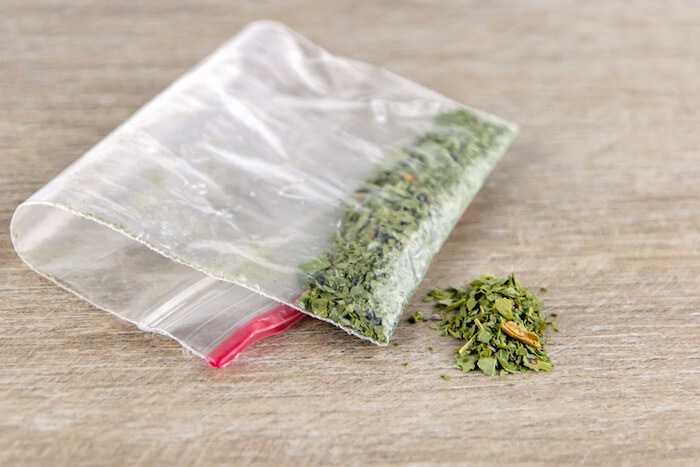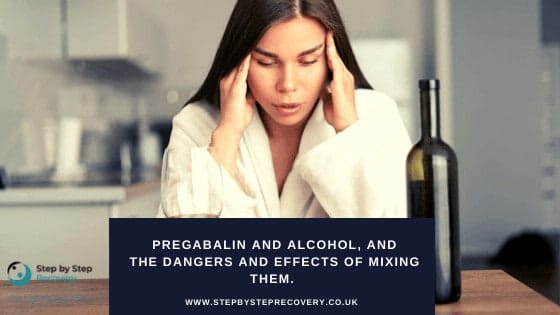Updated May 2022
Living with an addict can mean your life changes forever. Although many addicts do recover from addiction and manage to live fulfilling and happy lives, addiction is a disease that will always have an influence over them. Their unpredictable behaviour makes living with an addict even more stressful. Your mental health can suffer as you watch someone struggle with addiction, and at times you may feel hopeless and unable to cope.
Understanding that addiction is a chronic disease and an addict is not in control of their behaviour is the most important thing to remember. Research shows that addiction is a brain disease, with over three decades of evidence to support the scientific basis of this concept. However, this does not make the impact of living with an addict any easier or less challenging.
Addiction is an alarming and distressing condition to live with. Often, if you live with someone you care about and have tried to be a source of strength for, you will end up exhausted. Trying to help someone beat addiction by yourself is rarely successful. Treatment is complex and usually requires the involvement of several different medical professionals.

How Addiction Affects the Family
When someone in your family is an addict, their behaviour will affect everyone differently. The impact of living with an addict can cause you and your children to feel:
- Anxiety and stress — from never knowing how an addict will behave or the mood they may be in from moment to moment.
- Depression and guilt — due to missing your previous relationship with them and feeling powerless to help.
- Anger — for many reasons, addicts often lie about what they have been doing and make promises they don’t keep.
- Suicidal — and suffer from post-traumatic stress disorder (PTSD).
Children are also at additional risk for:
- Behavioural problems — such as lashing out or becoming withdrawn
- Drug and alcohol abuse — potentially becoming addicts themselves.
- Suicidal thoughts and suicide
In addition to the emotional impact on family members, they may also be in danger when an addict is using or driven by cravings to obtain more of the substance.
How Addiction Affects Relationships
Addiction affects relationships in many ways. When a partner is an addict, their priority will be obtaining and using the substance they are addicted to. Communication will break down and your partner will likely do anything they need to, including lying, stealing money or selling items they don’t own.
It is vital to take care of your own mental health and reach out to family and friends. Covering up a partner’s addiction may seem like the right thing to do, but in the long run, it will not help. Trying to keep their addiction a secret will also put even more pressure on you. If you don’t feel you can speak with family or friends, here are a few of the various agencies you can reach out to for support:
NHS Choices can help you to find where your closest drug support services.
Tel: 0300 999 1212
Talk to Frank provides advice and support with a 24/7 helpline.
Helpline (24 hours): 0300 123 6600 (interpreters for 120 languages) Text: 82111
Lifeline offers support for individuals and families
Tel : 0161 200 5486
Email: [email protected]
Release is a helpline for advice on legal issues.
Tel: 020 7324 2989
Email: [email protected]
Five Tips: How to Live with an Addict
When you’re living with an addict, you might feel responsible for their recovery from addiction. It is important to understand that an addict must want support in order to recover from addiction. All you can do is find ways to keep yourself and your family safe.
Here are five tips for living with an addict.:
- Have a plan in place if you are concerned about the behaviour of an addict becoming dangerous. Arrange an alternative place to stay, but do not tell them where you are going. If you don’t have anyone you can stay with, keep the contact number of your nearest refuge on your phone or with you.
- Keep your mobile charged and on you at all times. At night, keep it close by.
- Don’t be afraid to call the police. They will always assist you if you are in a vulnerable position.
- Do what you can to restrict access to money. If you have a joint bank account, open one in just your name and transfer any payments you receive from work, benefits, or other sources.
- Join a support group, don’t try to cope alone. Speaking with other people who understand how you feel is vital when living with an addict. Adfam is a national charity that runs local support groups and Families Anonymous is another organisation that runs local support groups for family and friends of anyone struggling with addiction. Tel: 0207 4984 680.
Living with a Recovering Addict
Living with a recovering addict comes with many challenges. An addict is still vulnerable and may feel the urge to use the substance, even after it is totally out of their system. This is why it can be helpful to ask how they are feeling and encourage a recovering addict to talk openly. Relapses are common and it’s important to monitor any behaviour that seems out of the ordinary.
Don’t put pressure on yourself to forgive or trust your partner, family member or friend. It takes time to build trust, and you may also want to consider going to a relationship therapist or arranging family counselling.
Be honest and explain that you need to set clear rules and boundaries. These may include:
- Getting up and dressed by 10.00 am.
- Coming home straight from work.
- Taking children to school every morning.
- Always calling if there is any reason they might be late.
It is advisable to not rely on a recovering addict to do anything without being prompted.
Living with an addict or a recovering addict is not something you should try to do without help and support.
We offer free advice on supporting and treating addiction. Step by Step Recovery exists to help individuals beat drug addiction permanently, providing support to the people we treat and their friends and family. Please complete our online assessment form or call our understanding team on 0800 170 1222 for free, confidential advice to help you or a loved one.
Page revised in March 2023, by Matthew Reece, a certified PG cons diploma, a clinical Lead/ Senior counsellor at Step by Step Recovery.




